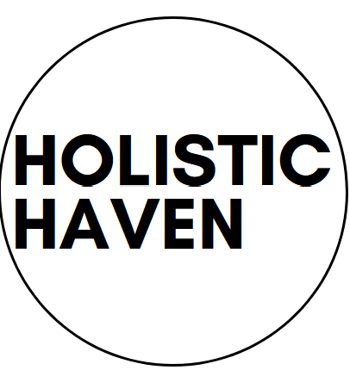The Power of Breathwork: Simple Techniques for Relaxation and Focus
1/18/20254 min read


In today's fast-paced world, we often find ourselves overwhelmed by stress, anxiety, and a constant stream of distractions. Amid all the chaos, one of the most effective and accessible tools to restore balance and calm is often overlooked: the power of breathwork. By simply tuning into our breath, we can harness its incredible potential to relax our minds, focus our thoughts, and rejuvenate our bodies. In this blog post, we'll explore the benefits of breathwork and share some simple techniques you can start using today to improve your relaxation and focus.
What is Breathwork?
Breathwork refers to various techniques in which you consciously control your breathing pattern to promote physical, mental, and emotional well-being. It's a practice that has roots in ancient traditions, but modern science is now backing up what many have known for centuries: our breath is a powerful tool for achieving greater health and mindfulness.
When we’re stressed or anxious, our breathing often becomes shallow and rapid. By intentionally slowing down and deepening our breath, we can signal to our nervous system that it’s time to relax and reset. Additionally, controlled breathing can help us regain focus and increase our mental clarity.
The Benefits of Breathwork
Before diving into specific techniques, let's look at the benefits that breathwork can offer:
Reduces Stress and Anxiety: Deep, slow breathing activates the parasympathetic nervous system (the "rest and digest" system), helping to lower levels of the stress hormone cortisol.
Improves Focus and Clarity: By regulating the breath, you enhance the flow of oxygen to the brain, which can improve cognitive function and concentration.
Enhances Emotional Resilience: Breathwork can help manage emotional responses, promoting a sense of calm even in challenging situations.
Boosts Energy: Certain types of breathwork can invigorate the body and increase energy levels, helping you feel more alert and refreshed.
Improves Sleep: Practicing breathwork before bed can activate the relaxation response, aiding in falling asleep faster and enjoying deeper rest.
Simple Breathwork Techniques for Relaxation and Focus
Now that we know how beneficial breathwork can be, let’s explore a few simple techniques to help you reduce stress and stay focused throughout the day.
1. Box Breathing (Square Breathing)
This technique is popular among athletes, military personnel, and anyone who wants to improve focus and reduce anxiety. It’s simple yet highly effective.
How to do it:
Sit in a comfortable position with your back straight.
Inhale deeply for a count of 4.
Hold your breath for a count of 4.
Exhale slowly for a count of 4.
Hold again for a count of 4.
Repeat this cycle for 3–5 minutes.
Benefits: Box breathing calms the nervous system, helps improve concentration, and balances the body’s stress response.
2. 4-7-8 Breathing
This technique is often used to relax and calm the mind, especially if you’re struggling with anxiety or trying to fall asleep.
How to do it:
Sit or lie down in a comfortable position.
Close your eyes and inhale through your nose for a count of 4.
Hold your breath for a count of 7.
Exhale slowly through your mouth for a count of 8.
Repeat this cycle for 4–5 rounds.
Benefits: The 4-7-8 method promotes relaxation, reduces stress, and prepares the body for restful sleep.
3. Alternate Nostril Breathing (Nadi Shodhana)
This technique is commonly used in yoga and helps balance the left and right sides of the brain, promoting a sense of calm and focus.
How to do it:
Sit comfortably with your spine straight and shoulders relaxed.
Using your right thumb, close off your right nostril.
Inhale deeply and slowly through your left nostril.
Close your left nostril with your right ring finger and release your right nostril.
Exhale slowly through your right nostril.
Inhale deeply and slowly through your right nostril.
Close your right nostril and exhale through your left nostril.
Continue this pattern for 5–10 minutes.
Benefits: Alternate nostril breathing helps clear mental fog, reduces stress, and enhances focus.
4. diaphragmatic Breathing (Belly Breathing)
This technique focuses on using the diaphragm, which can help deepen your breath and promote relaxation.
How to do it:
Sit or lie down comfortably.
Place one hand on your chest and the other on your abdomen.
Take a slow, deep breath through your nose, ensuring your diaphragm (not your chest) rises.
Exhale slowly through your mouth, allowing your abdomen to fall.
Continue for 5–10 minutes, focusing on making the breath slow and even.
Benefits: Diaphragmatic breathing reduces tension, increases oxygen flow to your body, and helps you relax deeply.
Integrating Breathwork into Your Daily Routine
The beauty of breathwork is that it doesn’t require much time or space, making it easy to incorporate into your daily routine. Here are a few ways to integrate these techniques into your life:
Morning Rituals: Start your day with a few minutes of box breathing or diaphragmatic breathing to set a calm tone for the day ahead.
During Breaks: When you feel your focus wavering, take a few minutes for alternate nostril breathing to reset your mind and increase clarity.
Before Bed: Practice the 4-7-8 technique to unwind and prepare your body for a peaceful night’s sleep.
Stress Management: Use these techniques in moments of stress or anxiety to regain control of your breath and your emotions.
Conclusion
Breathwork is a simple yet powerful practice that can have a profound impact on your overall well-being. Whether you’re looking to reduce stress, enhance focus, or simply cultivate a sense of calm, the power of breath is always available to you. By incorporating these simple techniques into your daily routine, you can start experiencing the many benefits of conscious breathing and transform the way you manage your mind and body.
Take a moment today to focus on your breath, and remember: you don’t have to be perfect at it—just breathe. Your body and mind will thank you for it.
